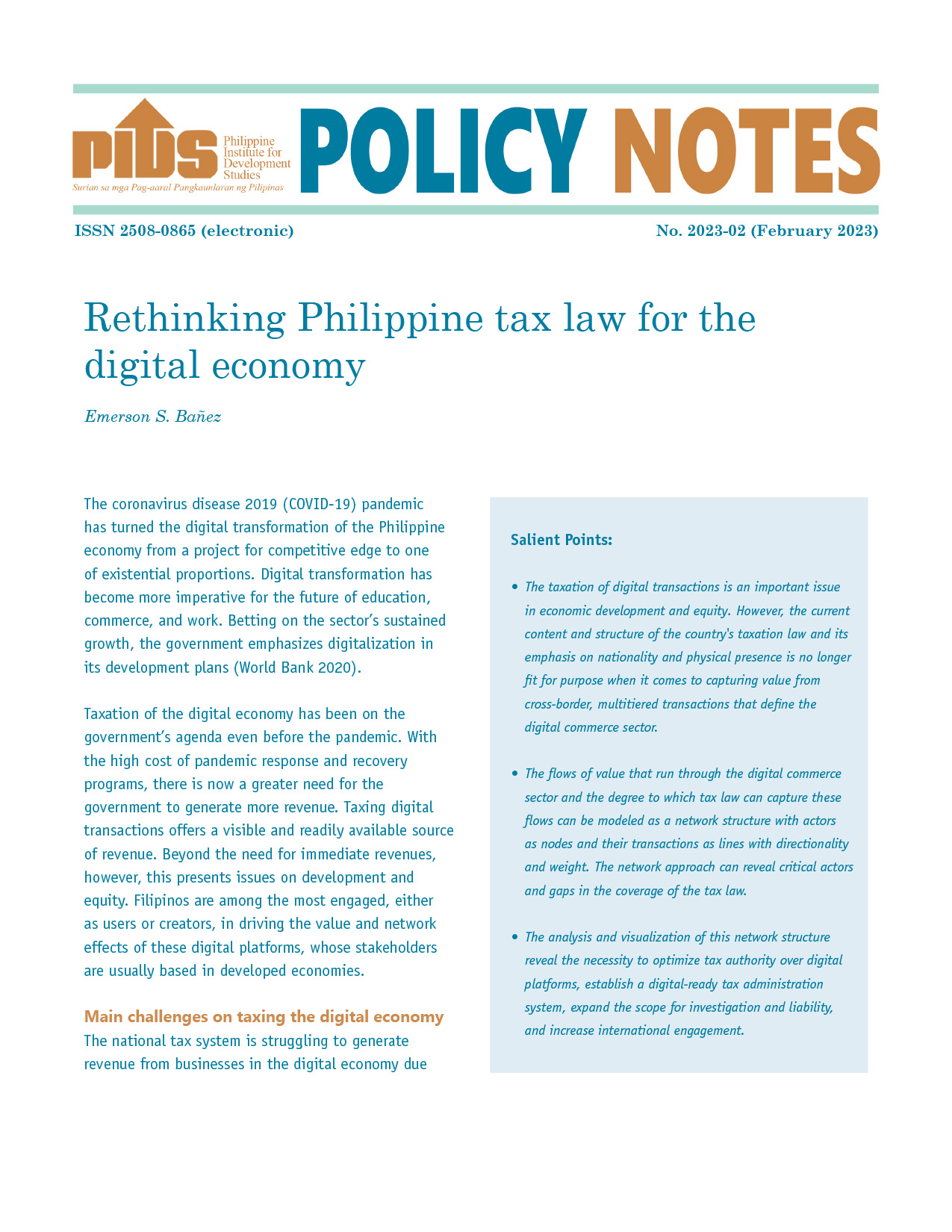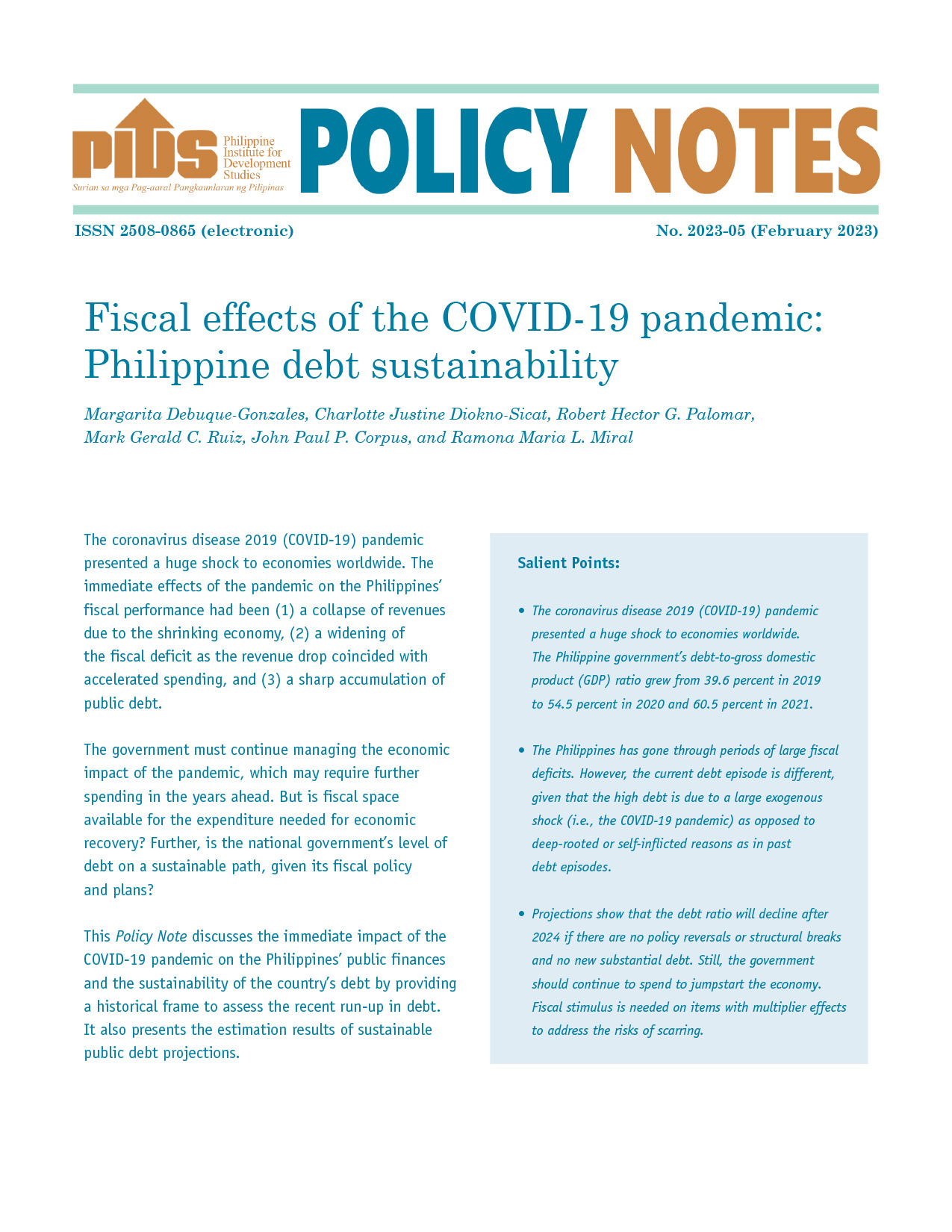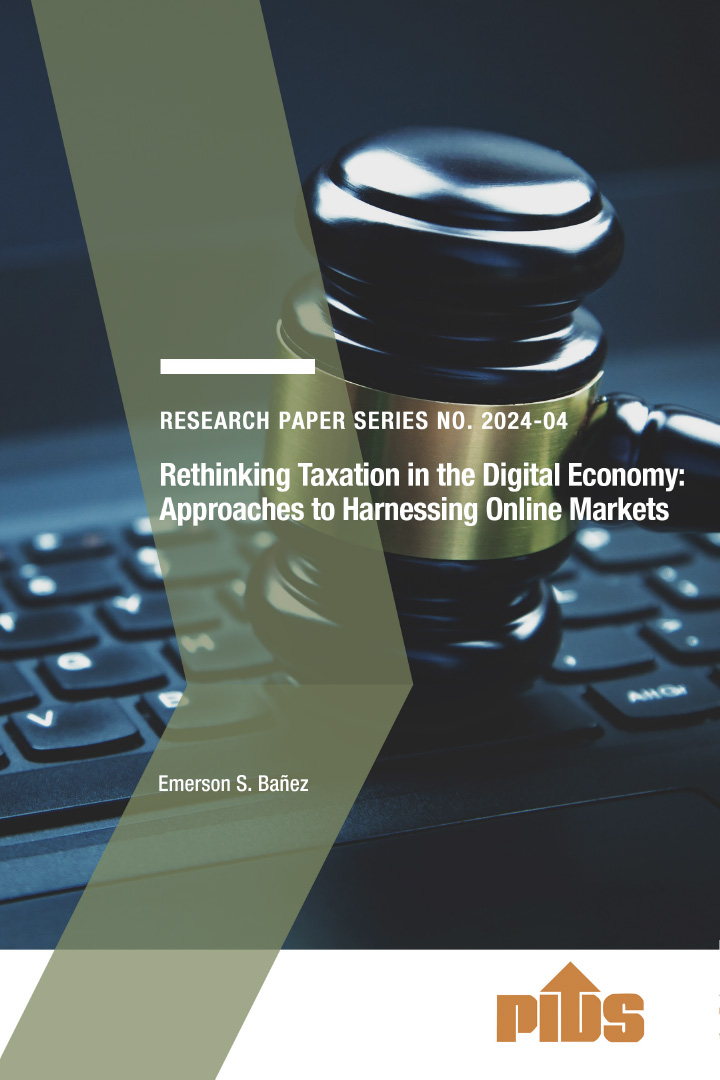MORE Filipinos will fall into poverty because of the Tax Reform for Acceleration and Inclusion (TRAIN) law, according to a study released by the Philippine Institute for Development Studies (PIDS).
The study, titled “Assessment of TRAIN’s Coal and Petroleum Excise Taxes: Environmental Benefits and Impacts on Sectoral Employment and Household Welfare,” was conducted by a research team that included Czar Joseph Castillo of the Labor Research Network and Ramon Clarete of the University of the Philippines.
The authors said this finding requires the government to consider additional assistance such as discounted rice prices from the National Food Authority (NFA), which was also included in the TRAIN law.
“It is thus important to make sure that the poorest households continue to be supported by additional measures that may reduce the impact of the indirect taxes. This may include an additional cash-transfer subsidy beyond the subsidy that is being provided under the unconditional cash-transfer program,” the authors said.
The researchers computed increases using 2015 poverty incidence baselines of 16.5 percent for households; 21.6 percent, individuals; 21.2 percent, women; 38.9 percent, fisherfolk; 10.5 percent, transport workers; and 42.2 percent, farmers.
They found that TRAIN 1, which includes excise taxes, would increase poverty incidence by 1.72 percent for households and 2.03 percent for individuals; 1.87 percent for women; 3.2 percent for fisherfolk; 2.06 percent for transport workers; and 2.33 percent for farmers.
Considering TRAIN 1 with the unconditional transfers, poverty could still increase for all sectors, except for transport workers whose poverty incidence could decline by 8.16 percent.
This is on account of the Pantawid Pasada program, which provided a fuel subsidy of P5,000 to jeepney drivers in 2018; and P20,500 in 2019 from the Land Transportation Franchise and Regulation Board.
Other sectors, however, will still see poverty incidence increase, albeit at a slower pace. The TRAIN 1 with the transfers would lead to a 0.26-percent increase in poverty incidence for households; 0.65 percent, individuals; 0.57 percent, women; 1.35 percent, fisherfolk; and 0.06 percent, farmers.
“The provision of the cash transfers [assuming 100-percent coverage for those targeted by the subsidies in the first to fifth lowest income deciles] offsets the increase in poverty incidence across sectors, especially for transport workers; most transportation workers are near poverty so that the income support program results in a significant improvement in their welfare. But at the same time, there is a slightly higher poverty incidence for the other sectors,” the authors said.
Energy-intensive industries
MEANWHILE, in terms of jobs, the impact of the increase in coal and petroleum on industries vary. This means that workers employed in energy-intensive industries would tend to be affected more than those working in less energy-intensive sectors.
This is largely due to the increase in coal and petroleum taxes. The TRAIN law “mandates a P50-per-metric-ton excise tax on domestic or imported coal and coke from P10 per metric ton.”
This means, the authors said, that prices of these commodities “will go up to P100 per metric ton in January 2019 and to a higher P150 per metric ton in January 2020.”
Biggest decline
THE authors found that the biggest decline in employment will be in the transport services and storage sector at 52,949 workers, which is larger than the aggregate employment loss of over 36,256 workers.
Other sectors that are bound to lose the most jobs are construction at 12,186 jobs; metals, 7,039 workers; paddy rice, 5,061; textile and garments, tanneries and leather, 4,872; and computer, electronic and optical products.
The sectors that will lose the least number of jobs are oil and gas at only 13 jobs; manufacture of sugar, 74 jobs; and iron and steel, 129 jobs.
However, there will be more jobs in certain sectors such as public administration, education and health, which will see an addition of 45,578 jobs; other services, including business services, 8,619; wholesale and retail trade and maintenance and repair of motor vehicles, 7,686; and financial services, 5,845 jobs. Sectors that will not lose or gain any jobs are the banana sector, as well as beverage and tobacco industry.
Full impact
HOWEVER, under the full impact of the Train 1, the aggregate job gain will reach 364,898 in all industries. The largest gains in jobs was observed in other services, including business services, and tourism at 206,863 jobs; other crops at 121,808; and paddy rice, 91,093 jobs.
In terms of job losses, the largest was observed in construction at 27,418 jobs lost; beverage and tobacco, 25,165; Computer, electronic and optical products, 23,086; and chemicals, cosmetics, rubber and plastic products, 22,082.
The sectors that will experience the least job losses were oil and gas at 25 and petroleum and other fuel products at 118 jobs lost.
The authors also found that with the full impact of TRAIN 1 and the unconditional transfers, the aggregate jobs gained could reach as many as 396,702.
The sectors with the largest increases in jobs are other services, including business services, and tourism at 215,482 jobs gained; other crops, 128,973; and paddy rice, 98,684 jobs gained.
The largest job losses were observed in public administration, education and health at 33,147 jobs; beverage and tobacco, 25,068; and construction, 24,372 jobs lost.
The least job losses were observed in oil and gas at 25 jobs lost followed by petroleum and other fuel products with 109 jobs lost.
“Under the full TRAIN scenario, employment in several manufacturing and service industries will show a decline, but this will be offset by a significant increase in employment in other services. There is a further gain in employment in the TRAIN plus Unconditional Cash Transfer scenario,” the authors said.
Shortfall
RECENTLY, the PIDS estimated that TRAIN 1 collection may fall short of the government’s target in the next three years.
PIDS Senior Research Fellow Rosario G. Manasan said total tax revenues may be reduced by P66.097 billion in 2018 and P33 billion in 2019. The TRAIN law is projected to generate additional revenues of P6 billion, or 0.03 percent of GDP, in 2020 onward.
The TRAIN also had an adverse impact on the poorest households, requiring the government to provide Unconditional Cash Transfers of P300 to P400 a month in the next three to four years.
Manasan said the tax revenue estimates of the incremental revenues are lower than the official estimates, which place the revenue gains from the TRAIN law at P63 billion in 2018, P104 billion in 2019 and P140 billion in 2020.
She said actual revenues from the personal income tax may fall below the 2018 target by P43 billion, which suggests that the revenue loss from PIT reform may actually be closer to P190 billion, larger by P43 billion than the finance department’s P146 billion estimate, and higher by P20.5 billion than the PIDS paper’s P210 billion. Further, she said the collections of the Bureau of Internal Revenue and Bureau of Customs in October indicate that excise and VAT revenues may fall short of their collection targets for the entire 2018 by a combined total of P36 billion.












